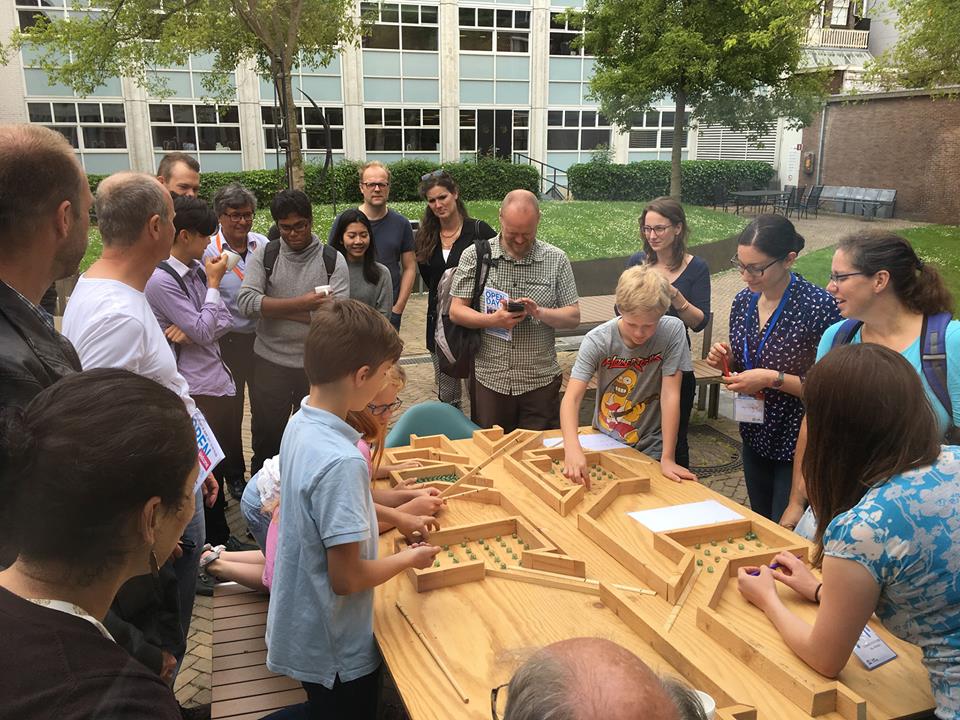While working at IHE Delft (a water research institute), as a game-y type of person I was approached to do something for children for the Open Day. I also spoke with colleagues who wanted to do something about water conflicts and thought maybe a game would be a good idea. During this conversation someone mentioned the River Basin Game, something I’d never heard of. She took me upstairs and pointed out something which looked like an enormous wooden board leant against a wall.
Turning it over, I saw that on the other side was a river basin with farms made of wood. “Water” marbles roll down the river and the “farmers” can divert it into their farms, trying to get enough water to irrigate their crops without disadvantaging downstream farmers. This game was developed by Bruce Lankford as a tool for working with farmers in regions with upstream-downstream water conflicts in Africa, and he had donated this copy to IHE. It looked a lot of fun so I bought 200 marbles and decided to give it a go. 
We showed up at the Open Day armed with case studies and examples ready for a day of serious play and discussion with adult visitors. However, they never got a look in, as the kids loved the game so much!
I realised that day how easily kids can get to grips with complicated issues related to upstream-downstream equality – and how honest they can be. I remember one exchange in particular, between a child and her father. She had the upstream farm in the game, and had diverted the whole river to irrigate her land. It went like this:
Dad: Careful, if you do that you’ll get all the water and there’ll be none left for anyone else.
Child (rolling eyes): Yes, I know. That’s the whole point!